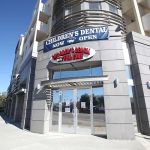What Are the Risk Factors for Oral Cancer and How to Avoid Them?
- 1. Understanding Oral Cancer
- 2. Key Risk Factors for Oral Cancer
- 3. How to Avoid Oral Cancer
- 4. A Case Study: Early Detection Saves Lives
- 5. Conclusion and Prevention Tips
1. Understanding Oral Cancer
Oral cancer is a serious health condition that affects millions of people worldwide. It occurs in the tissues of the mouth or throat and can spread to other areas of the body if not detected early. Knowing the risk factors and prevention strategies is crucial for reducing the chances of developing this type of cancer. In this article, we’ll explore the key risk factors for oral cancer and how you can minimize your risk.
2. Key Risk Factors for Oral Cancer
Several factors increase the risk of developing oral cancer. While some of these factors are beyond our control, many are linked to lifestyle choices that can be changed. Let’s dive into the primary risk factors:
2.1 Tobacco Use
One of the most significant risk factors for oral cancer is tobacco use, whether through smoking or smokeless tobacco. Studies have shown that tobacco use is responsible for a large percentage of oral cancer cases. The chemicals found in tobacco can damage the cells of the mouth, leading to cancer.
2.2 Excessive Alcohol Consumption
Drinking alcohol excessively also increases the risk of oral cancer. When combined with tobacco use, the risk is even higher. Alcohol can irritate the lining of the mouth, making it more susceptible to cancer-causing substances.
2.3 Human Papillomavirus (HPV)
HPV is a virus that is known to cause several types of cancer, including oral cancer. Infection with high-risk HPV types can lead to changes in the cells of the mouth and throat, increasing the risk of developing cancer.
2.4 Poor Diet
A diet lacking in essential nutrients, such as vitamins A, C, and E, can weaken the immune system and increase the risk of developing oral cancer. A healthy diet rich in fruits and vegetables plays a crucial role in preventing cancer.
2.5 Age and Gender
Oral cancer is more common in older adults, particularly those over the age of 50. Men are also at a higher risk compared to women, likely due to higher rates of tobacco and alcohol use among men.
3. How to Avoid Oral Cancer
Fortunately, oral cancer is preventable. By making some simple lifestyle changes, you can significantly reduce your risk. Here are some steps you can take:
3.1 Stop Smoking and Using Tobacco
Quitting smoking or using any form of tobacco is one of the best things you can do to lower your risk of oral cancer. If you need help quitting, consider reaching out to a healthcare professional or using smoking cessation programs.
3.2 Limit Alcohol Consumption
Reducing alcohol intake or eliminating it entirely can significantly lower your chances of developing oral cancer. Try to limit your consumption to one or two drinks per day, or ideally avoid alcohol altogether.
3.3 Get Vaccinated Against HPV
There is a vaccine available that can protect against the high-risk types of HPV responsible for many oral cancer cases. Speak with your healthcare provider about the HPV vaccine, especially if you are a young adult.
3.4 Eat a Healthy Diet
Incorporating a variety of fruits and vegetables into your diet can help boost your immune system and provide your body with essential vitamins and minerals that may protect against oral cancer. Try to focus on a balanced diet with plenty of antioxidants and fiber.
3.5 Regular Dental Check-ups
Regular visits to the dentist are crucial for early detection of oral cancer. Your dentist can check for signs of cancer or precancerous conditions during routine exams, ensuring that any abnormalities are caught early.
4. A Case Study: Early Detection Saves Lives
Let’s look at a real-life example of how early detection can make a significant difference in the fight against oral cancer. Mary, a 55-year-old woman, had been a smoker for over 30 years. During a routine dental check-up, her dentist noticed a small lesion in her mouth. After further testing, she was diagnosed with early-stage oral cancer. Thanks to the early detection, Mary was able to undergo treatment and is now cancer-free. Her story highlights the importance of regular dental check-ups and paying attention to any changes in your mouth.
5. Conclusion and Prevention Tips
Oral cancer is a serious but preventable disease. By understanding the risk factors and taking proactive steps to reduce your risk, you can significantly lower your chances of developing this cancer. Remember to avoid tobacco, limit alcohol consumption, eat a healthy diet, get vaccinated against HPV, and visit your dentist regularly. Taking these precautions can help ensure that you maintain good oral health and reduce your risk of oral cancer.
If you’re looking for more information on oral health and cancer prevention, visit Dentistry Toothtruth to explore a range of products and services designed to support your oral health journey.







 Preserve Dentistry5.0 (13 review)
Preserve Dentistry5.0 (13 review) Prism Dental Care4.0 (82 review)
Prism Dental Care4.0 (82 review) New Lenox Dental Group4.0 (46 review)
New Lenox Dental Group4.0 (46 review) Familia Dental4.0 (458 review)
Familia Dental4.0 (458 review) Children's Dental FunZone - Pediatric Dentist & Orthodontist - West LA4.0 (1410 review)
Children's Dental FunZone - Pediatric Dentist & Orthodontist - West LA4.0 (1410 review) Florida Dental Implant Institute5.0 (67 review)
Florida Dental Implant Institute5.0 (67 review) The Importance of Oral Health Education During Pregnancy for a Healthy Pregnancy
The Importance of Oral Health Education During Pregnancy for a Healthy Pregnancy Best Tips for Brushing Your Teeth Properly for Healthy Gums: Essential Techniques for Oral Health
Best Tips for Brushing Your Teeth Properly for Healthy Gums: Essential Techniques for Oral Health Why Skipping Dental Checkups Can Lead to Bigger Oral Health Problems
Why Skipping Dental Checkups Can Lead to Bigger Oral Health Problems Advantages of Porcelain Dental Restorations
Advantages of Porcelain Dental Restorations How Can Diabetes Cause Tooth and Gum Problems? Preventing and Managing Oral Health Issues
How Can Diabetes Cause Tooth and Gum Problems? Preventing and Managing Oral Health Issues Healthy Habits for Promoting Good Oral Health and Hygiene: Tips for a Healthy Smile
Healthy Habits for Promoting Good Oral Health and Hygiene: Tips for a Healthy Smile